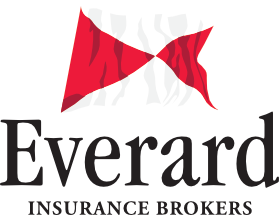
Voyage Charter and Time Charter are two types of maritime agreements usually called Charter Parties Agreement (CPA) that govern the transport of goods at sea.
Both are broadly similar, and to decide which type of agreement is suitable for your operations. In this post we will discuss the key differences between Voyage Charter and Time Charter Parties, to help you decide which is right for you.
What is a Voyage Charter?
In shipping, a voyage charter describes an agreement to a vessel for a specific voyage or round-trip between specified ports. The one-off nature of voyage charters means they are commonly used for one-time shipments and occasional shipping requirements.
For example, an oil company taking advantage of an unexpected crash in oil prices may decide to buy more stock than usual and choose a one-off voyage charter for a deep-sea tanker to transport the crude oil from Ras Tanura port in Saudi Arabia to Corpus Christi port in Texas, United States.
A voyage charter is agreed between a shipowner (who provides the vessel) and a charterer (who pays to transport goods). The charterer pays either a lump-sum or quantity-based freight rate to transport the cargo for the specific voyage, as well as the cost of loading and unloading the goods.
When Will Cargo Owners or Shippers Use Voyage Charter Agreements?
- As a Voyage Charter is a limited short-term contract, they are most likely to be used when there is a low risk of loss.
- Voyage Charters can be arranged relatively quickly, so Cargo Owners or Shippers often use them to benefit from favourable shipping rates and other opportunities.
- The flexibility and short-term nature of Voyage Charters also make them a good choice for maritime companies with irregular or ad-hoc shipping requirements.
What is a Time Charter?
While a Voyage Charter only applies for a single voyage, a Time Charter instead applies for a specific amount of time. The shipowner will agree to hire out their vessel to a charterer for a specified period, during which the charterer will have more control over the ship including choosing its schedule, route and cargo handling procedures. Such feature tend to make time charters more suitable for companies and businesses which ship cargo regularly.
A Time Charter could last for a number of months, or even a number of years. For the length of the agreement, the charterer will either pay a fixed amount or typically a daily rate.
An example could be a gas company who may time charter’s specialist LNG (Liquid Natural Gas) Carrier from the Middle East to Asia.
In a Time Charter Party, the shipowner will retain responsibility for crew management, and for the ongoing maintenance of the ship.
When Will Cargo Owners or Shippers Consider Time Charter Party Agreements?
- Time Charter Party agreements are usually long-term contracts. Shipowners and charterers may enter into such an CPA when a company needs ongoing access to shipping services.
- It is common for companies to take out Time Charters when they have frequent and/or several/many shipments or requirements, but they do not have the resources or need to to purchase their own vessel.
Is There a Difference Between Voyage Charter and Time Charter Party Agreements?
Fundamentally, the only difference between a Time Charter and a Voyage Charter Party Agreement is the time for which the CPA apply. Voyage Charter Party agreements only last for a single voyage. Time Charter Party agreements last for a fixed term, which can include multiple voyages.
What Are The Insurance Implications of Voyage Charter and Time Charter Agreements?
- Time Charter Insurance covers all voyages made by a vessel, or by multiple vessels, during the agreed chartered period. Insurers often provide open cover on a 12-month basis, and charterers will provide a summary of their monthly, quarterly, or annual operations. The insurer will then adjust the charterer’s premiums as necessary at the end of each quarter, or at the end of the policy year.
- Voyage Charter insurance covers a single vessel for the duration of a single voyage. The charterer will therefore pay a set premium for this single voyage.
Beyond this, whether a Voyage or Time Charterparty insurance for both types of CAP are essentially an enhanced form of Protection and Indemnity Insurance that also includes cover for Hull and Machinery. Further and if the Charterer is the Cargo Owner during all or part of a voyage, then cover also excludes loss of or damage to their own cargoes.
The policies may also include optional additional covers for:
- Freight Defence & Demurrage (FD&D), which can cover any legal expenses that arise as a result of disputes, and
- Bunker Insurance, which covers the loss of Bunkers purchased by the Charterers.
There is a third arrangement, known as a bareboat charter. We will explain the circumstances in which this arrangement may apply, along with the insurance implications, in a future post.
What Liability Insurance Do You Need For Your Voyage?
Take the time to complete our short Charters Liability Insurance Questionnaire.
This will help you understand your operation’s possible exposure to risk, which will help us provide the best package of cover and terms for your voyage.
Or if you want to discuss your requirements in more detail, get in touch with our marine team by calling us on 020 3148 9540 or email info@everardinsurance.co.uk

